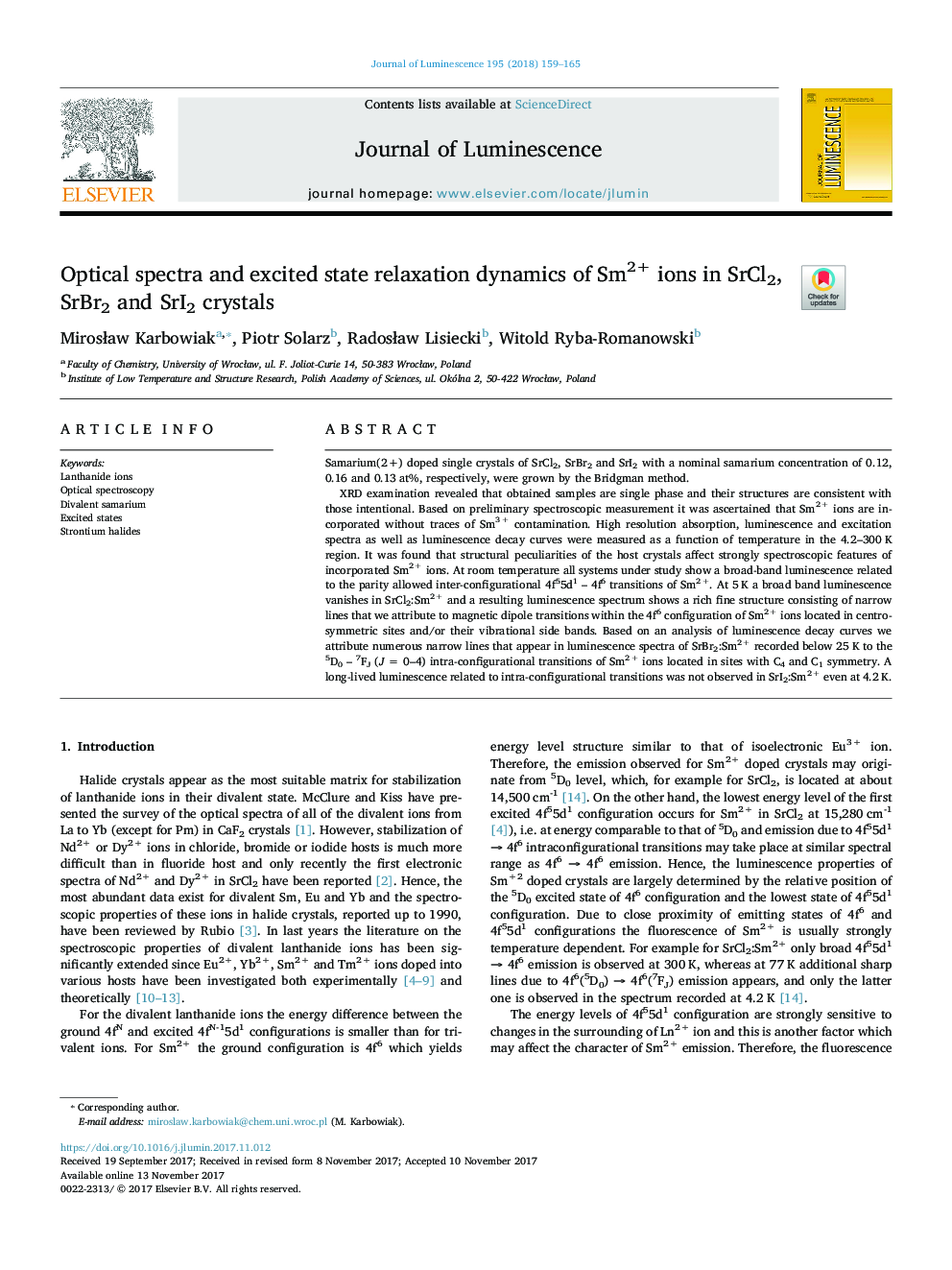| Article ID | Journal | Published Year | Pages | File Type |
|---|---|---|---|---|
| 7840394 | Journal of Luminescence | 2018 | 7 Pages |
Abstract
XRD examination revealed that obtained samples are single phase and their structures are consistent with those intentional. Based on preliminary spectroscopic measurement it was ascertained that Sm2+ ions are incorporated without traces of Sm3+ contamination. High resolution absorption, luminescence and excitation spectra as well as luminescence decay curves were measured as a function of temperature in the 4.2-300Â K region. It was found that structural peculiarities of the host crystals affect strongly spectroscopic features of incorporated Sm2+ ions. At room temperature all systems under study show a broad-band luminescence related to the parity allowed inter-configurational 4f55d1 - 4f6 transitions of Sm2+. At 5Â K a broad band luminescence vanishes in SrCl2:Sm2+ and a resulting luminescence spectrum shows a rich fine structure consisting of narrow lines that we attribute to magnetic dipole transitions within the 4f6 configuration of Sm2+ ions located in centro-symmetric sites and/or their vibrational side bands. Based on an analysis of luminescence decay curves we attribute numerous narrow lines that appear in luminescence spectra of SrBr2:Sm2+ recorded below 25Â K to the 5D0 - 7FJ (J = 0-4) intra-configurational transitions of Sm2+ ions located in sites with C4 and C1 symmetry. A long-lived luminescence related to intra-configurational transitions was not observed in SrI2:Sm2+ even at 4.2Â K.
Related Topics
Physical Sciences and Engineering
Chemistry
Physical and Theoretical Chemistry
Authors
MirosÅaw Karbowiak, Piotr Solarz, RadosÅaw Lisiecki, Witold Ryba-Romanowski,
